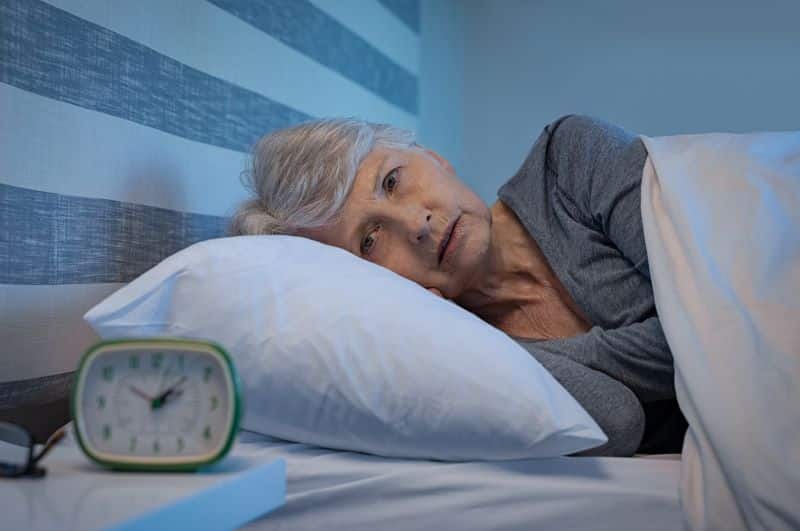Treating Sleep Disorders in Over 60s

Having trouble getting a good night’s sleep is a common complaint among people aged 60 and over.
As we age, our bodies produce less of certain growth hormones and it’s these hormones that promote deep sleep – the kind of sleep we need to wake in the morning feeling refreshed and ready to start the day.
Older people with sleep disorders usually have no trouble falling asleep – it’s staying asleep that’s the problem. The light, patchy sleep commonly described by over-60s is caused by a lack of a particular hormone called melatonin, and the result can sometimes leave you feeling more tired in the morning than you were the night before.
Long term, sleep problems can lead to an increased risk of cardiovascular disease, hypertension, diabetes, stroke and depression, as well as weight gain, so it’s worth the effort to find a solution to your sleep problems.
Following are a few things to try if you or an over-60 loved one is having trouble getting a good long visit to the Land of Nod:
Greet the morning sun
In a sleep study conducted in a U.S. nursing home in 2017 it was found that residents who were exposed to direct sunlight between the hours of 8am and 10am for 5 days enjoyed a much greater quality of sleep during the night. Scientists believe this may be due to the way natural sunlight helps set and regulate our circadian rhythm – our body’s innate 24-hour sleep-wake cycle. Related to this, natural sunlight also promotes the production of cortisol and serotonin, two hormones important to maintaining good sleep-wake patterns.
Staying up late
While it sounds counterintuitive, going to bed later in the night can re-set a person’s circadian rhythm and ensure you’re sound asleep during the wee small hours and not wide awake, staring at the ceiling, agonising over an awkward conversation you had with a work colleague back in 1992. Studies have shown that the best time to be asleep to encourage maximum production of sleep-beneficial hormones is between 10pm and 2am so it’s important to get into a sleep cycle that ensures you’re asleep during this 4-hour window.
Avoid alcohol
While alcohol may help you nod off to sleep initially, unfortunately it also disrupts your sleep cycle. Drinking directly before bed can cause you to wake several hours later and prevent you getting back to sleep for some time. Try putting a few hours between your last drink and bedtime to reduce the chance of fragmented sleep.
Avoid caffeine and sugar
It’s no secret that caffeine and sugar are stimulants; great for when you want to be energised and alert, but best avoided when sleep is on your agenda. Avoid consuming caffeine and sugar 3- 4 hours before bed and you’ll have a better chance of going to sleep and staying that way.
Get some exercise
For those with limited mobility, exercise may be challenging, however something as simple as a walk outside in the fresh air, or light weight training can help improve sleep that night. Participants in a Northwestern University sleep study reported that the quality of their sleep improved from being ‘poor’ to ‘good’ at the end of the 16-week exercise trial. During that trial participants took part in moderately rigorous aerobic exercise (cycling or brisk walking) four times a week for the 16 week period. Participants also reported experiencing “fewer depressive symptoms, more vitality, and less sleepiness in the daytime”.
Cup of Camomile Tea
A randomised controlled trial conducted in a nursing home in 2017 found that chamomile, administered daily, greatly improved the sleep quality of the elderly people participating in the study. The trial used camomile tablets however chamomile tea may have a similar effect, and with side effects virtually non-existent, this is certainly one to try.
Lights Out at Night
Blue light is emitted by electronic devices like computers, smart phones and tablets and it’s also emitted in lesser amounts in modern LED light bulbs. Blue light has a different wave length to natural sunlight and the old incandescent light bulbs, and some researchers believe this difference can effect our health.
Blue light has been shown to suppress the secretion of melatonin, the hormone that promotes a good night’s sleep when present in the body in optimal levels. This research has led sleep specialists around the world to recommend that, for people experiencing sleep difficulty, blue light emitting devices should be turned off several hours before bedtime.
Short term medications
While not advisable as a long-term answer, sleep medications can be very beneficial as a short term remedy to help people gain some badly needed rest while they work on finding a more sustainable solution. Melatonin is one of the most well-known sleep medications, however there are others that deliver benefit with less of the well-known side effects.
Many over-60s have trouble swallowing large sleeping pills and this is where National Custom Compounding can help. With a script from a doctor we can make up sleep medications as a lozenge or liquid to avoid the problem of gagging on oversized tablets. We can also add different flavours to make the medication more palatable.
For more information on tailor-made medicine formulated specifically for your health needs, contact one of the friendly staff at National Custom Compounding on 1300 731 755 or send an email to [email protected].
More articles that may interest you:
[optin-monster-inline slug=”oqqklvasafov6yvbfsuo”]
